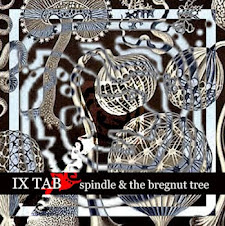
Semi-spoilers. Perhaps. Maybe not. It's right there...
Christopher Priests's Inverted World is a savage, now times novel. It's a gentle form of savagery; moving slowly, inexorably, towards what we already know but perhaps fail to comprehend; a sleight of hand trick that keeps you guessing despite the truth being out there, for all to see.
The pace matches the context; the dragged city, the blinding sun...
It's a perfect pace.
Consider too the renewed popularity of Leo Strauss: the aspect of his political thought that is so relevant today is his elitist notion of democracy, the idea of the ‘necessary lie’. Elites should rule, aware of the actual state of things (the materialist logic of power), and feed the people fables to keep them happy in their blessed ignorance. For Strauss, Socrates was guilty as charged: philosophy is a threat to society. Questioning the gods and the ethos of the city undermines the citizens’ loyalty, and thus the basis of normal social life. Yet philosophy is also the highest, the worthiest, of human endeavours. The solution proposed was that philosophers keep their teachings secret, as in fact they did, passing them on by writing ‘between the lines’. The true, hidden message contained in the ‘great tradition’ of philosophy from Plato to Hobbes and Locke is that there are no gods, that morality is merely prejudice, and that society is not grounded in nature.
This is from Zizek's Good Manners In The Age Of Wikileaks article at LRB, but he could be reviewing Priest's book. Maybe he is; sometimes Zizek twists and turns like he's got his showreels mixed:
I can see how Inverted World's bravura flips, even the change in narrative style (or, at one point, narrator) might be annoying but why it's annoying is fascinating in itself and the internal, secretive, seemingly unlikely yet unquestioned (at least initially) logic of the Guilds parallels the logic used to explain, for instance, why bankers need their bonuses or, more abstractly, why the world has to be how it is...
As if "Life's not fair; move on!" is the only response possible to our situation...
Again, Zizek could be describing Inverted World with his: It's easier to imagine the end of the world than the end of capitalism (here via Doctor Who...)

In turn, that phrase seems attributable to Jameson, whose mall-logic could perhaps also be inverted here; what could be more postmodern than a wooden city, pulled on rails, besieged on all sides and forever escaping a boundless terror which no one is sure of?
The third? world is also rendered well here; the savage is savage, even if at times it's just an attractive sexual savagery - contrast the odd sexuality between Helward and Victoria (a lights off for the territory) with his easy, light-hearted sexplay when he's taking the took girls back(we are all taken).
And it surely can't be a surprise that it's the girls who are disappearing into heavy gravity mesomorphs with every step away from the rarefied air of the city - this is going native in extremis, returning to the land, ending up immersed in a nature which nobody can agree on...
here there be tygers...
The sense of other is a permanent state for the city - the city literally can't exist without those outside it's boundaries... city dwellers literally can't perceive the world how they need to without those who can't perceive that way... they need others not to see... it's Them and Us and without Them there is no US.
Oh, shit, sorry; what was I thinking? I forgot to say: it's a great book...




















1 comment:
Compared with that in principle, science fiction books. I think I'll stay Asimov books.
http://www.konyv-konyvek.hu/book_images/26a/999640926a.jpg
Post a Comment